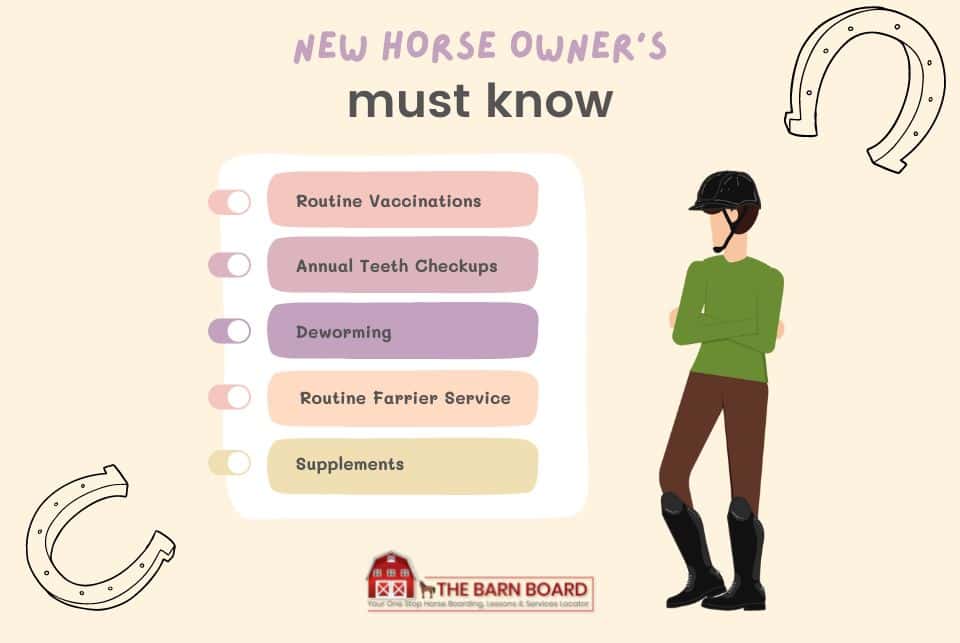Horse ownership is a big responsibility and require time, effort and money for proper upkeep.
Outside of deciding whether your horse will be indoor or outdoor boarded, how much daily turnout (the more the better), type of activities the horse will participate and train in, how much hay/feed the horse needs daily, there are several routine and annual requirements for the upkeep of a horse.
Let’s go through these…
Find a local equine veterinarian to consult on your horse’s overall health care maintenance.
The following are required and routine care for a healthy horse:
1) Annual Dental Care
You should get your horse’s teeth checked by your vet or an equine Dental Technician. The frequency of these checkups differs with age. Your veterinarian will let you know when the next dental appointment should be.
Between the age of 2 to 5, more frequent visits will be needed. Shedding of baby teeth and eruption of permanent teeth happen until the age of 5. Afterward, he will be having a full set of permanent teeth.
For adult horses, at least once a year teeth checkup is recommended. Horses are adapted for high-fiber diets. So offering more concentrated feed may cause changes in teeth wearing patterns. This problem will be addressed in dental appointments.
The other thing is that the age edges of the teeth can become sharp, making it uncomfortable for the horse. For this, a procedure called “floating” will be performed to smooth the sharp edges (teeth rasping).
2) Routine Vaccinations
The vaccinations differ from the area your horse lives in, the amount of exposure he will have with the outside horses, the vaccination history of the dam, and age.
The goal of vaccination is to develop and maintain both individual and herd immunity. Broodmare vaccination is important to provide active immunity for mare and passive immunity for the foal. Then the foal should be vaccinated at a young age, and thereafter annual vaccination should be performed.
Some of the mandatory vaccinations that should be offered regardless of age or exposure are:
- Rabies
- Encephalitis
- Tetanus
- West Nile Virus
- Equine Herpesvirus 1 and 4
In the endemic regions, vaccination against Botulism and Strangles (Streptococcus equi infection) is also recommended. Most of these diseases are life-threatening. Therefore it is the owner’s responsibility to stay stick to the vaccination schedule.
3) Deworming
Deworming is important to eliminate excess amounts of parasitic helminths. But due to the increased risk of anthelmintic resistance among horses, the traditional once in two month deworming for adult horses is not performed anymore.
The frequency differs for pregnant mares, foals, and adult horses.
The pregnant mare should be dewormed with ivermectin and moxidectin 4-6 weeks before foaling.
For the foals, starting at 2 months, deworming should be done once every two months. The type of drugs differs among sessions.
For adult horses, typical deworming schedule happens in Spring and once again in the Fall.
Discuss with your veterinarian to know when the next deworming session will take place.
4) Find a local farrier to care for your horse’s hoof health.
Regular visit of a farrier includes trimming the hoof, resetting the horseshoe, and regular hoof care to ensure a healthier hoof. Untreated hooves may grow in an imbalanced way.
The farrier may trim the hoof in a way to keep the hooves balanced. Overgrown hooves result in extra stress on the joints and ligaments on the limbs. This can result in more severe problems such as joint pains if left untreated.
Hoof care is very important for the horse’s overall health. If the hoof is healthy, a farrier visit in every 4 to 6 weeks will be enough.
But if the horse has a hoof-related disease, the horse requires more attention from the farrier. The growth rate of the hoof decides how often a farrier visit is needed.
The factors affecting hoof growth and condition are:
- Age – Older horses have a lower rate of hoof growth compared to foals.
- Breed – Some horse breeds have better hoof health due to the genetics
- Exercise – a horse with regular exercises, will have better hoof growth
- Nutrition – A horse with poor nutrition leads to hoof-related health issues. You can provide a hoof supplement to ensure the good condition of the hooves.
If you have any questions, feel free to email us: info@thebarnboard.com or book a call!






